
If anything, the Afghanistan Cricket Board should have been sanctioned, if not suspended, at least three years ago, considering they violated a very crucial clause in the Membership Criteria of the ICC charter for Full Member Nations, a list they’ve been a part of since 2017 as a Test-playing country.
As the “primary governing body for cricket”, the board is in no position to administer, manage or develop “women’s cricket” in its country. Legalese aside, the fact remains that under Taliban rule, women in Afghanistan can barely step outside their homes with any freedom. Playing a game of cricket, apart from illegal, probably doesn’t even count as a priority at the moment. So, the second part of the protocol being breached by the ACB – the one that involves having “satisfactory women’s pathway structures in place” – don’t even warrant a mention.

Why then is Afghanistan not only participating in yet another world event, but also being celebrated for being one of its ultimate success stories with a win needed to make their second straight semi-final in an ICC tournament? That, too, in a game against Australia, who have largely cited the same violations of ICC rules with regards to the “gender apartheid” there to not engage with Afghanistan in bilateral cricket.
It’s become an annual debate now, since there’s an ICC event every year, and one which has no right or wrong outcome. The simple reason being, either way, the lives of women in the Taliban-ruled Afghanistan do not improve. The restrictions on them continue to get more stringent, with access to medical schools and universities also more or less cut off.
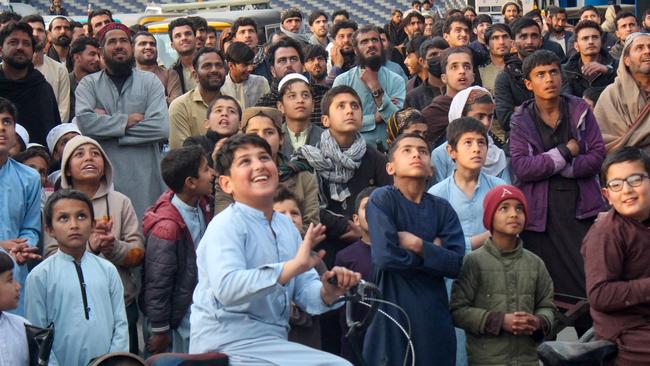
We have to start with acknowledging and accepting that this is a complicated situation that goes well beyond the “to play or not to play” debate. This is not a linear argument that leads to a straightforward solution, the kinds that the Western world historically has tried to impose on regions that it deems to be “far off”. The way First World commentary often gets described in South Asia anyway.
While sporting isolations have worked in the past, and continue to be handed out even now, here you are dealing with a very different scenario, when you talk about the Taliban and their religious principles and diktats. So what will the ICC achieve by banning or barring Afghanistan from its events, or stripping them off their Test status? I’ve heard some ignorant views from certain parts of the world that seem to suggest that a suspension would publicly shame the Taliban or the governing body there to do something about women’s cricket. This is the crux of the issue. The lack of cultural understanding.
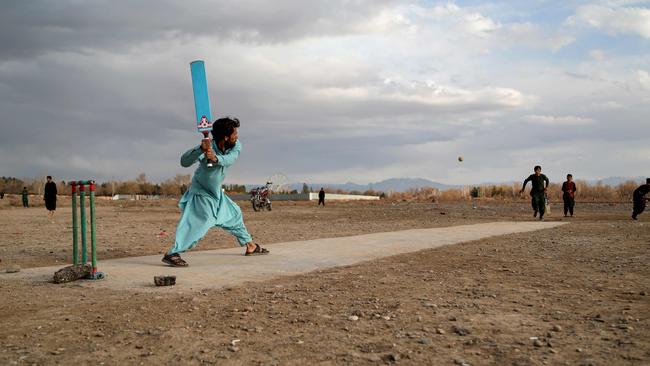
If you try to get at the Taliban by punishing their male cricketers, the chances are that the ICC’s action will be counter-productive, taking the spotlight away from the diabolical conditions that women there have to live under.
It will isolate them further, allowing the rulers to continue their human rights abuses.
At least when the Afghan men’s team play in front of the world’s glare, we at least get the opportunity to highlight the plight of women there.
I’ll never forget a radio cross on the day when the Taliban were en route to taking over Kabul in 2021. An Afghan woman, who’d spent time living in Australia, told me it could be the last time she’d be able to visit the local supermarket by herself. I often wonder how she’s doing and what her life is like.
By cutting Afghanistan loose, you are also taking away the biggest escape millions of Afghans currently have from their everyday challenges. This is not to say that’s the best reason to let them stay as a full member nation. But it’s good enough for now.
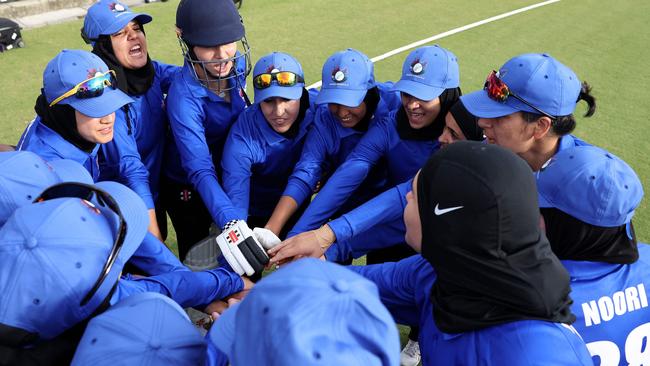
I have a couple of close Afghan friends who I met in journalism school years ago, and who now practice their profession in their homeland. One of them talks about how the people there live vicariously through the feats of Rashid Khan and Ibrahim Zadran. You’d have seen it too through the many clips of thousands on the streets across Khost and Kandahar over the past couple of days celebrating their team’s famous win over England.
Not the women, though. Like with playing sport, watching and being entertained by sport is also deemed to be both unnecessary and inappropriate.
It’s also a recognition of what used to be “their country” for those who’ve managed to escape the Taliban rule, including the amazing Afghanistan women’s cricketers who, thanks to the efforts of Mel Jones and her team, recently played their first game in Melbourne.
During the T20 World Cup in 2022, I interviewed a couple of former ADF interpreters who’ve since shifted base to Adelaide. One had survived a kidnapping attempt by breaking free despite being physically beaten up badly. They spoke about what the Afghanistan v Australia match in Adelaide, which was then Rashid Khan’s home away from home, would mean to them.
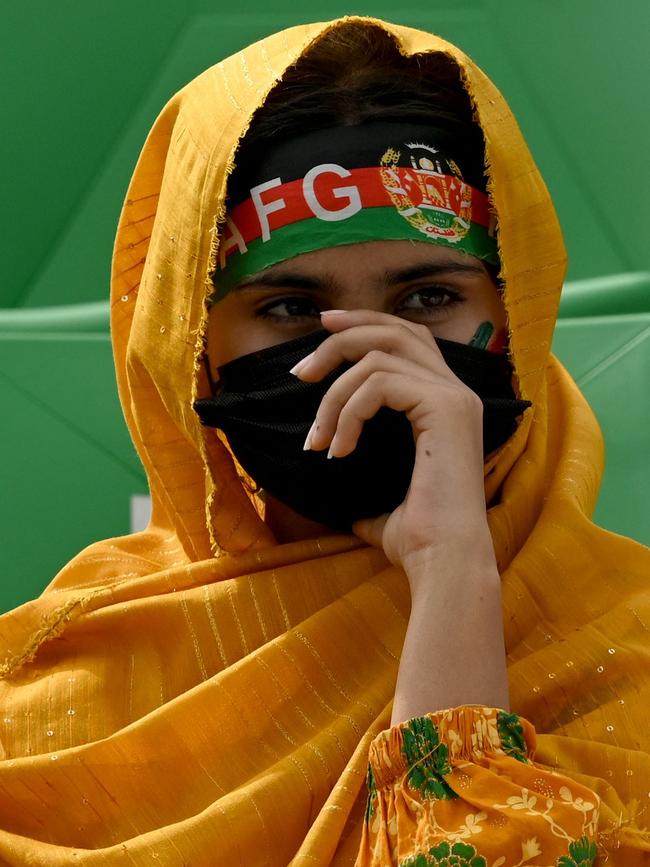
“The national flag on their uniforms gives us hope. Cricket gives us hope. We’ll sing our anthem in the loudest voice possible, in front of 40,000 people at the Oval and millions around the world. That’s when we will vent out all our anger against them. We thought we’d lost our country. But this will prove that it still belongs to us,” one of them had told me. They said the TV broadcast at home cuts out any image showing the erstwhile flag and only starts once the national anthem has finished.
They also spoke about how careful they had to be about posting on social media.
“When I post stuff, even about cricket, friend requests come through from people connected with those in control (the Taliban) to keep an eye on me. I still have family back there and we cannot be careful enough,” I was told.
It’s a reminder of why their male cricketers don’t speak out more, even though their most recognisable names in Rashid Khan and Mohammad Nabi have both been on record about the awful living conditions for women.
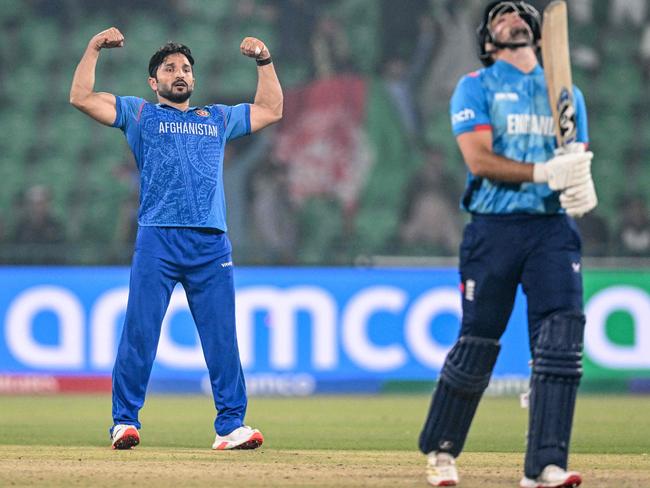
There is by the way also a sentiment in South Asia around “convenient morality” that comes across from the First World countries when it comes to sanctions. About how human right violations in other more influential countries can get discounted if not ignored when it comes to playing cricket there. How morality gets rationalised based on which country they are dealing with. Having said that, there’s a level of hypocrisy when it comes to espousing morals and values as human beings, regardless of where you come from. And it’s never straightforward.
Just like being agreeable to play against Afghanistan isn’t. For it doesn’t automatically mean that you don’t care about the lives of women there currently.




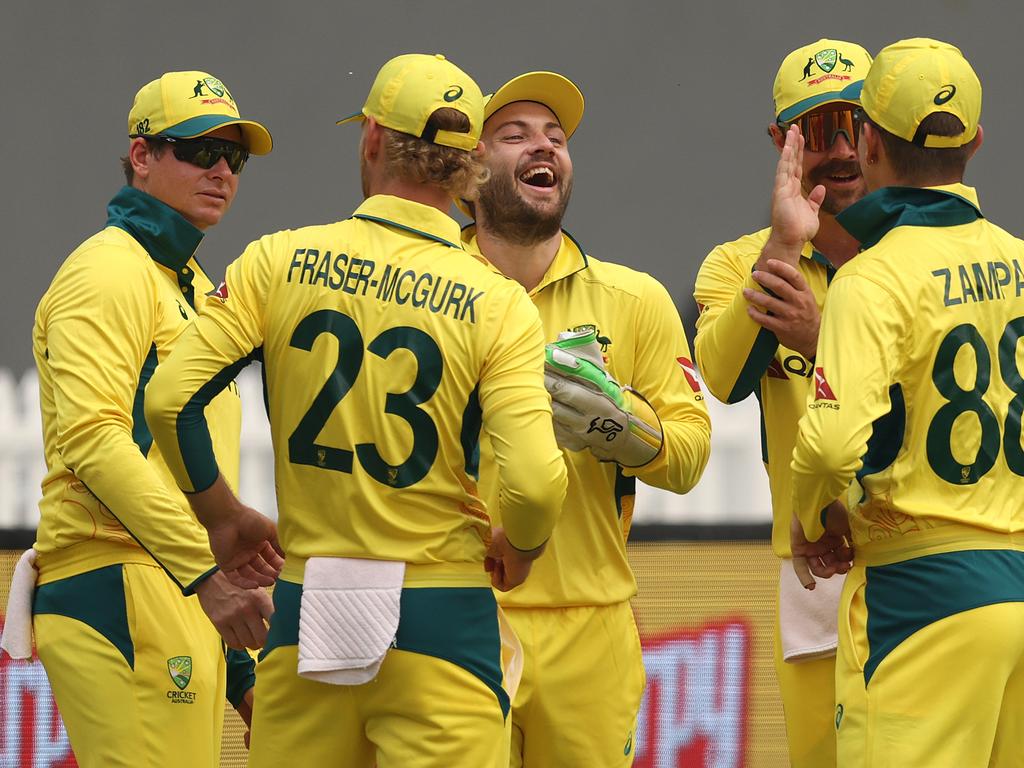


If you went by the word of the law based on the ICC’s constitution, Afghanistan should not have been playing against Australia on Friday night. They shouldn’t in fact be even part of the Champions Trophy, or an active part of the world cricket community.